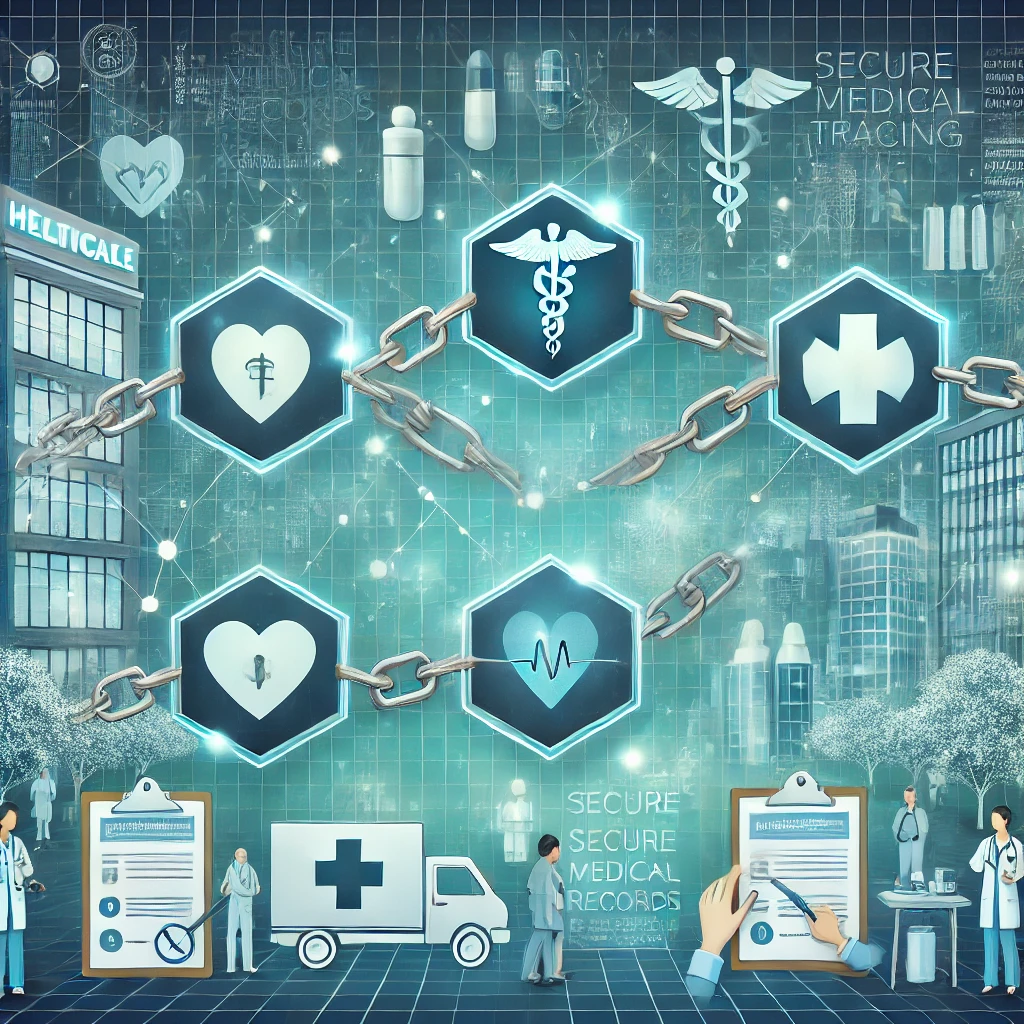In the world of medicine, patient and prescription data must be classified to avoid a breach in privacy and then distributed to clinics and hospitals. Alice one able to organise all this data safely and securely. A modern solution has arisen in the form of blockchain technology. we will explain the mechanisms and advantages of implementing blockchain technology in medicine.
what is a blockchain
A blockchain is a collaborative Ledger of transaction records that cannot be tampered with. Its name comes from the records being grouped in blocks each which have a unique hash identifier. These are then connected and each has the hash of the previous block. This structure.Allows modification of a block to be very difficult to hide, since all other blocks we modified as a result, so it makes a great place to store information you don’t want to change. In order to add a new block to the blockchain, it is sent to every participant or node in the network to get validated. The nodes receive a reward for their work.Usually in the form of cryptocurrency. The block is then added and an updated form of the chain is sent throughout the network.
how can block chain be used in healthcare
Well, blockchain can be a vital asset to organise supply chains with authentic origins and preventing counterfeit prescriptions and devices.From harming the unaware public, the entire prescription process from manufacturing to obtainment by the patient is made transparent using blockchain and at each step, verification of the current block can be done to preserve the security of the medications information. For example, the pharmacy can review and.Validate if a medicines, manufacturing, warehouse and shipping method was up to par and if so, authorised for patient use. Another area in healthcare, the blockchain technology could enhance his contact tracing.
Contact Tracing
Contact tracing is a key strategy used by health officials during pandemics to help slow the spread of disease. Upon diagnosis, contact tracers will direct people to services that can help them deal with the disease and isolate properly in order to prevent further spreading.
In addition, anyone that has been in close contact with the person diagnosed will be notified about possible exposure and will be appropriately directed. Keep in mind that the name of the diagnose individuals kept confidential. Blockchain can be utilised in contact tracing by allowing the sharing of disease diagnosis.Between doctors and patients, or doctors and other doctors.
features such as decentralisation, delayed timestamps and delayed location data helped to increase patient privacy while continuing to efficiently notify individuals of disease diagnosis. But perhaps the most important area that blockchain could revolutionise.Is electronic medical records instead of hard copy records that can potentially get into the wrong hands or the transfer of records via e-mail or mail, all medical records are now online and encrypted if the records need to be transferred to a different area of the hospital, switch between doctors, or transferred to another hospital, setting up a unified.Electronic medical record blockchain would allow patients to securely own their own data and have the validity of that data be verified by healthcare providers through query of the block chain on whether the patients locally stored encrypted information correctly corresponds to the encrypted information on the blockchain. There is very little risk in the information being intercepted by someone else due to the block chains encryption.And privacy features.
The security of the system is further enhanced by decentralised identifiers and self sovereign identity. Decentralised identifiers allow for a verifiable but decentralised digital identity.While self sovereign identity gives people control over their digital identities, All in all, blockchain technology can work to organise and protect confidential patient information by allowing the patient to control their own data. In a self sovereign identity ecosystem, this system is independent and does not rely on a single third party.Revalidation, Rather, the data can be distributed into decentralised chains where the data is in multiple locations, preventing tampering and manipulation.
At Cryptocurrency Verse, we’re dedicated to keeping you informed on the latest developments in blockchain and healthcare technology. Explore our site for more articles on the future of blockchain applications in healthcare and how they’re shaping the medical field.. As always, stay tuned for more Information about cryptocurrency and trading.
